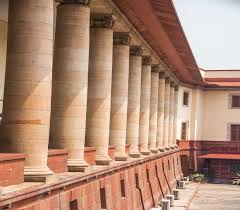The High Court has confirmed the judgment of conviction and order of sentence dated 09.03.2006 passed by the Special Judge, (Atrocities), Bilaspur, Chhattisgarh (hereinafter referred to as the ‘Trial Court’) in Special Criminal Case No.19 of 2005. The Trial Court in the said case while acquitting the appellant-accused from the charge under Section 3(2)(5) of the Scheduled Castes and Scheduled Tribes (Prevention of Atrocities) Act, 1989, (hereinafter referred to as the SC/ST Act), had convicted him for the offence under Section 302 of IPC (Para 1) (Para 1)
Having regard to the said evidence, it appears that though all the witnesses have stated the same story, none of the witnesses had any personal knowledge about the alleged incident and about the cause of the deteriorating health condition of Bisahu Singh. Even if the said version of the deceased before his wife, his daughter, his brother, the Kotwar and others is treated as his dying declaration, it would be very risky to convict the accused on such a weak piece of evidence. (Para 23)
As per the settled law, though a statement made by a person who is dying is made exception to the rule of hearsay and has been made admissible in evidence under Section 32 of the Evidence Act, it would not be prudent to base conviction, relying upon such dying declaration alone. In the instant case, even if that so-called dying declaration of the deceased is believed, at the most it could be said that the deceased on 22.07.2003 had consumed liquor along with Hari Ram and others, and that in the third glass of liquor, Hari Ram had mixed some herb, and made the deceased to drink it. It may be noted that there is no evidence on record to show as to what kind of herb was allegedly mixed by Hari Ram, and whether such herb was poisonous or not. (Para 24)
Having regard to such scanty evidence, it is difficult to hold that the prosecution had proved the four important propositions laid down by this Court in case of allegation of murder by poisoning namely (1) the accused had a clear motive to administer poison to the deceased; (2) the deceased died of poison said to have been administered; (3) the accused had the poison in his possession and that (4) the accused had an opportunity to administer the poison to the deceased. It is also pertinent to note that the Chemical examination report (Ex. P/14) though was an incriminating piece of evidence, was not brought to the notice of the appellant during the course of his examination under Section 313 of Cr.P.C. All these circumstances put together, have made the case of prosecution very vulnerable. (Para 26)
It cannot be gainsaid that this Court should be slow in reappreciating the evidence and in upsetting the findings recorded by the two courts below, particularly while exercising the jurisdiction under Article 136, however such exercise of jurisdiction is not prohibited, when the Court finds that such findings are afflicted with ex-facie infirmities. (Para 27)
In that view of the matter, the findings recorded by the Trial Court as confirmed by the High Court against the appellant-accused for his conviction under Section 302 IPC deserve to be set aside and the appellant deserves to be set free. (Para 28)
SUPREME COURT OF INDIA
2023 STPL(Web) 410 SC
[2023 INSC 986]
Hariprasad @ Kishan Sahu Vs. State Of Chhattisgarh
Criminal Appeal No. 1182 of 2012-Decided on 07-11-2023.
https://stpllaw.in/wp-content/uploads/2023/11/2023-STPLWeb-410-SC.pdf







